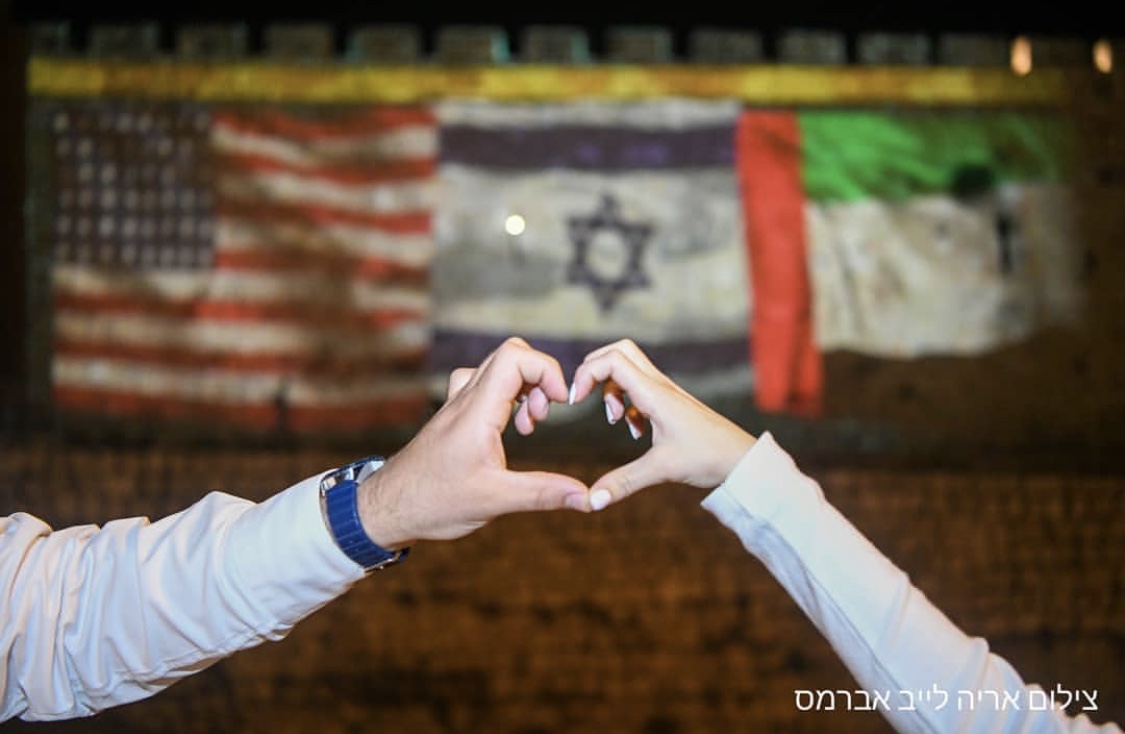
By STACY FISCH
The United Arab Emirates are the ‘cheerleaders’ for the U.S. role supporting the normalization of relations between Israel and Arab states, said the gulf state’s ambassador to Washington, Yousef Al-Otaiba, on Thursday
Al-Otaiba, whom some insiders call the man behind the recent deal that forged diplomatic ties between Israel and her oil-rich Sunni Muslim neighbor, applauded the American role during a webinar meeting hosted by Anti-Defamation League, a pro-Israel Jewish-American advocacy group. Al-Otaiba accredited the White House and stressed that Israel and the UAE’s ties might have never happened.
“I think if it was another White House, it would have gotten done,” Al- Otaiba predicted, but it would have “probably taken a lot longer.”
The looming presidential election will have a significant impact, he added.
Al-Otaiba was named one of Time Magazine’s 100 Most Influential People of 2020 for being the man behind the scenes to build ties with the U.S. and Israel. His op-ed was featured in Yedioth Ahronoth, a national daily Israeli newspaper in June. In this op-ed, when he wrote of the importance of creating peace, and the negative impacts the threatened annexation of the West Bank by Israel.
According to a poll in August, about 80% of Israeli’s were in support of normalization. Al-Otabia said this deal bought time for Israel and the Palestinians to create a two-state solution to the conflict. “We can’t force the two sides to negotiate if they don’t want to,” Al-Otabia continues, “all I did was create space, so I hope that people take advantage of this opportunity that they have time to negotiate a two-state solution.”
The leader of the Palestine Liberation Organization, Mahmoud Abbas, has refused negotiations in the past. In 2008 former Prime Minister Ehud Olmert offered Abbas a peace deal of the century, including the west side of Jerusalem as their capital. In 2017 the PLO cut ties with the U.S. after President Donald Trump recognized Jerusalem as Israel’s capital.
Al-Otaiba, regarded as somewhat of a man-about-town in D.C., said the UAE had no unsolved problems with Israel and shared no borders.
Tourism was one of the significant immediate opportunities that the UAE wanted to exploit, said Al-Otaiba , calling it a “low hanging fruit.”
COVID has dampened the nation’s tourism industry. Last year their tourism was the highest at 11%, the government said. Direct flights from Tel Aviv to Abu Dhabi and Dubai were on the drawing boards.
Eli’s Kosher Kitchen, located in Dubai, gained the first Kashrut O.U. certificate, a set of dietary laws dealing with the foods that Jews are permitted to eat. O.U. is the most prominent certification. Owner Eli Epstein’s new cuisine will be “Kosherati,” cooking kosher with an Emirati twist. “Kosher food in hotels and all UAE we’re ready,” Al-Otaiba said with a giggle.
In three to four weeks, organizers of a project called the Abraham House, which holds three worshiping sites, church, mosque, and synagogue, planned a groundbreaking ceremony.
“It’s not going to be a sight-seeing tour,” Al-Otaiba said. “It will have educational components, the focus on Israel will be higher [than before].” Al-Otaiba said that he foresaw his 10- year- old son growing up in a peaceful atmosphere between Arabs and Jews.
Israeli technology is expanding to the Dubai region. This week a family-owned conglomerate, Al Habtoor Group, featuring hospitality, automobiles, and real estate, signed a multi-million-dollar agreement with the Israeli company Mobileye, intending to put a self-driving car, Robotaxi, on the streets of Dubai by the end of 2022. By the end of 2022.
Many other cooperative financial ties were in the works.
Photo by Arie Leib Abrams

Leave a Reply
You must be logged in to post a comment.